
Almería: The Sun-Soaked Gem of Andalusia
Almería, a sun-drenched city located in the southeastern part of Spain, is a hidden gem of the Andalusian region. The city is known for its rich history, stunning beaches, and vibrant culture. As you wander through its streets, you'll be captivated by the blend of Moorish and Spanish influences that tell the tale of its past. Start your journey with a visit to the Alcazaba, a grand fortress that overlooks the city. This 10th-century castle offers panoramic views and a glimpse into Almería's Moorish history. Don't miss the Cathedral of Almería, a unique Gothic and Renaissance structure that once served as a fortress against pirate attacks. For beach lovers, Almería boasts some of the most beautiful stretches of coastline in Spain. The Playa de los Genoveses and Playa de Mónsul are perfect spots to soak up the sun and enjoy the crystal-clear waters. If you're a film buff, you'll be thrilled to know that these beaches have been featured in many famous movies. Almería is also a food lover's paradise. The local cuisine is a delightful mix of Mediterranean flavors. Be sure to try tapas in the city's bustling markets or enjoy fresh seafood at a seaside restaurant. The lively atmosphere and friendly locals will make you feel right at home. Lastly, don't forget to explore the natural beauty surrounding Almería. The Cabo de Gata-Níjar Natural Park is a must-visit for its stunning landscapes, hiking trails, and unique wildlife. Whether you're an adventurer or simply looking to relax, Almería offers something for everyone.
Local tips in Almeria
- Visit the Alcazaba early in the morning to avoid crowds and enjoy the best views.
- Try the local tapas in the Mercado Central for an authentic taste of Almería.
- Rent a car if you plan to explore the Cabo de Gata-Níjar Natural Park.
- Carry sunscreen and a hat, the sun can be quite intense, especially in the summer.
- Learn a few basic Spanish phrases; locals appreciate the effort and it can enhance your experience.
Almería: The Sun-Soaked Gem of Andalusia
Almería, a sun-drenched city located in the southeastern part of Spain, is a hidden gem of the Andalusian region. The city is known for its rich history, stunning beaches, and vibrant culture. As you wander through its streets, you'll be captivated by the blend of Moorish and Spanish influences that tell the tale of its past. Start your journey with a visit to the Alcazaba, a grand fortress that overlooks the city. This 10th-century castle offers panoramic views and a glimpse into Almería's Moorish history. Don't miss the Cathedral of Almería, a unique Gothic and Renaissance structure that once served as a fortress against pirate attacks. For beach lovers, Almería boasts some of the most beautiful stretches of coastline in Spain. The Playa de los Genoveses and Playa de Mónsul are perfect spots to soak up the sun and enjoy the crystal-clear waters. If you're a film buff, you'll be thrilled to know that these beaches have been featured in many famous movies. Almería is also a food lover's paradise. The local cuisine is a delightful mix of Mediterranean flavors. Be sure to try tapas in the city's bustling markets or enjoy fresh seafood at a seaside restaurant. The lively atmosphere and friendly locals will make you feel right at home. Lastly, don't forget to explore the natural beauty surrounding Almería. The Cabo de Gata-Níjar Natural Park is a must-visit for its stunning landscapes, hiking trails, and unique wildlife. Whether you're an adventurer or simply looking to relax, Almería offers something for everyone.
When is the best time to go to Almeria?
Iconic landmarks you can’t miss
Conjunto Monumental de la Alcazaba de Almería
Discover the Alcazaba of Almería, a historic fortress that offers breathtaking views and a glimpse into Andalusia's rich cultural heritage.
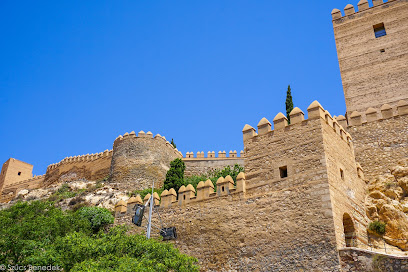
Almeria Cathedral
Explore the stunning Almeria Cathedral, a magnificent blend of Gothic and Renaissance architecture in the heart of Almeria, Spain.
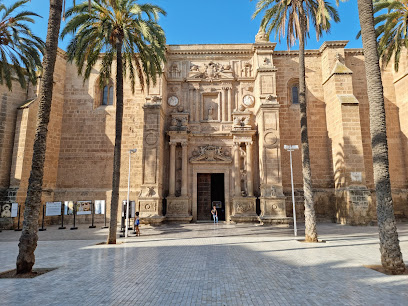
Civil War Shelters
Discover the fascinating history of the Civil War Shelters in Almería, a unique landmark that offers a glimpse into Spain's past.
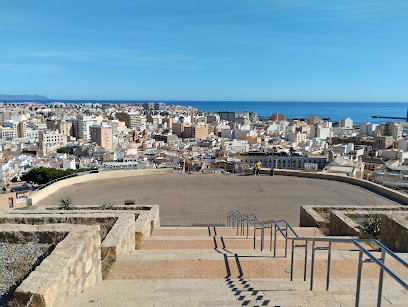
Parque Nicolás Salmerón
Explore the tranquil beauty of Parque Nicolás Salmerón, a lush urban park in Almería offering stunning sea views and delightful gardens.
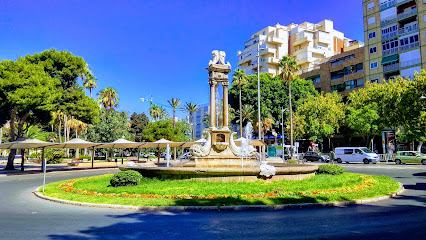
Museo de Arqueólogico de Almeria
Discover the ancient wonders of Almeria at the Museo de Arqueológico, where history comes alive through fascinating exhibits and artifacts.
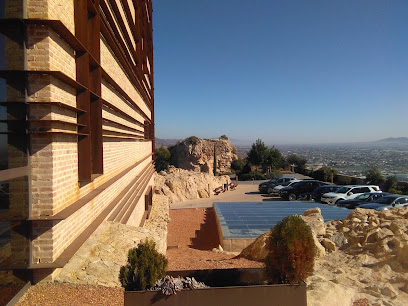
Plaza Vieja
Discover the vibrant heart of Almería at Plaza Vieja, a historical landmark filled with culture, culinary delights, and breathtaking architecture.
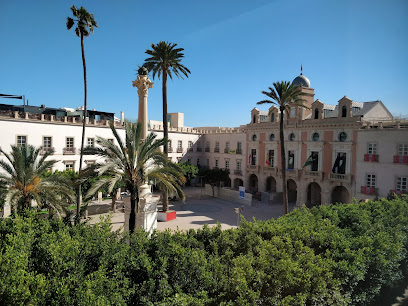
Parque de las Almadrabillas
Explore Parque de las Almadrabillas: A serene park in Almería, blending natural beauty with rich cultural experiences for an unforgettable getaway.
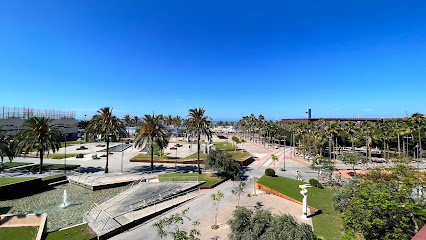
Almeria Walk of Fame
Discover the Almeria Walk of Fame, where cinema history comes alive in a charming promenade adorned with stars honoring film legends.
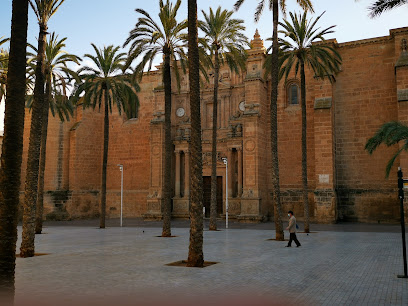
Cerro San Cristobal
Discover the breathtaking views and rich history of Cerro San Cristobal, a stunning landmark in Almeria, Spain.
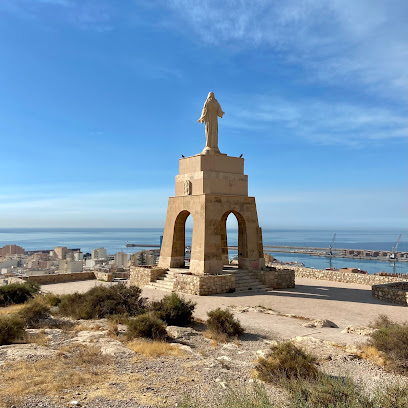
Cathedral Square
Explore Cathedral Square in Almería: A historical landmark blending stunning architecture with vibrant local culture in the heart of Spain.
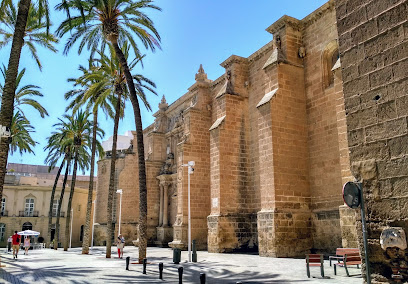
St. Peter's Square
Discover the historical charm of St. Peter's Square in Almería, a vibrant hub of culture, architecture, and local life that captivates every visitor.
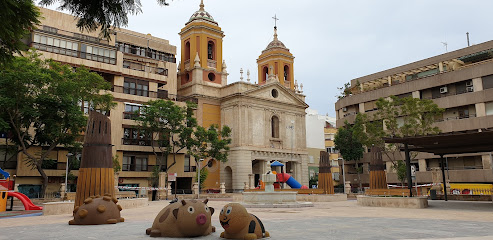
Heritage Interpretation Center of Almeria
Explore Almería's fascinating past at the Heritage Interpretation Center, where history comes alive through engaging exhibits and knowledgeable guides.
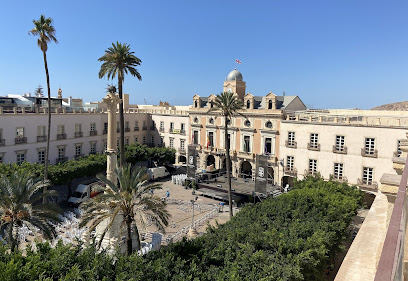
Real Hospital of St. María Magdalena
Explore the Real Hospital of St. María Magdalena, a historical gem in Almería showcasing stunning architecture and rich cultural heritage.
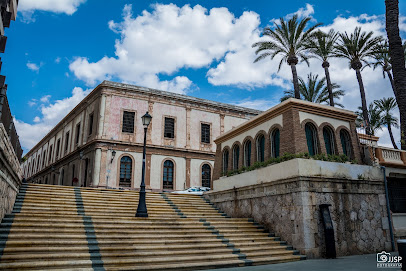
Tren turístico Almería
Discover Almería's charm aboard the Tren Turístico, a scenic train ride that reveals the city's history and stunning landscapes.
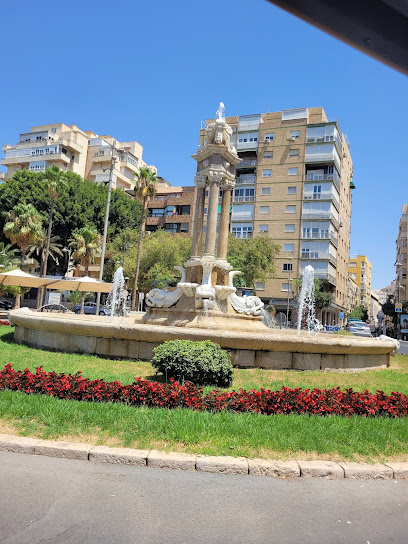
Centro de Interpretación Puerta de Almería (Muralla Califal)
Explore the Centro de Interpretación Puerta de Almería, an archaeological museum revealing the rich history of Almería through captivating exhibits and immersive displays.
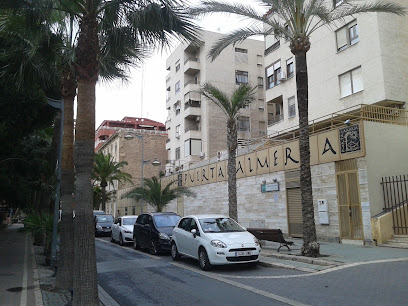
Unmissable attractions to see
Playa de San José
Discover the beauty of Playa de San José, a stunning public beach in Almería, perfect for relaxation, water sports, and savoring local cuisine.
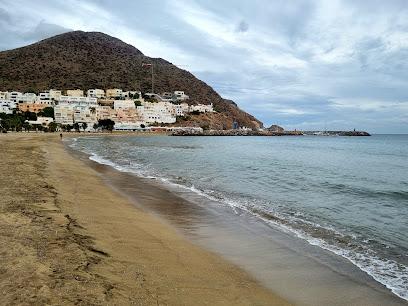
Parque Natural del Cabo de Gata-Níjar
Explore the stunning landscapes and diverse ecosystems of Parque Natural del Cabo de Gata-Níjar, a must-visit nature preserve in Almería, Spain.
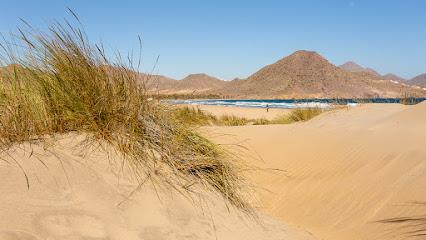
Cathedral Encarnación de Almería
Explore the stunning Cathedral of Encarnación in Almería, a historic masterpiece blending Gothic and Renaissance architecture in the heart of the city.
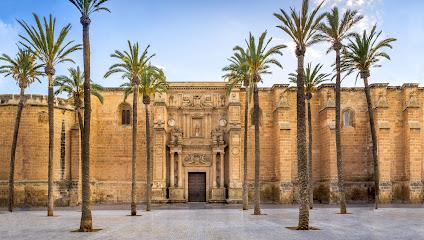
Faro de Cabo de Gata
Explore the Cabo de Gata Lighthouse, a stunning natural landmark offering breathtaking views, rich history, and an unforgettable coastal experience in Almería.
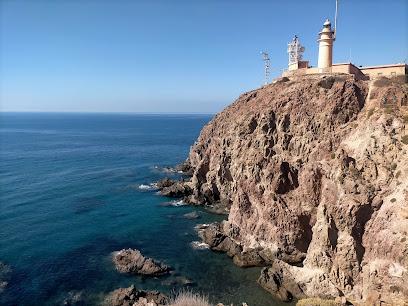
Parque de las Familias
Explore the beauty and fun of Parque de las Familias in Almería, a perfect family-friendly escape with lush landscapes and vibrant recreational areas.
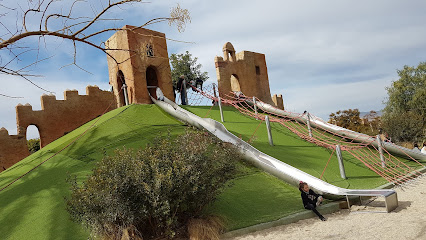
Fort Bravo / Texas Hollywood
Discover Fort Bravo / Texas Hollywood, the ultimate Wild West theme park in Almería, featuring live shows, iconic film sets, and unforgettable family fun.
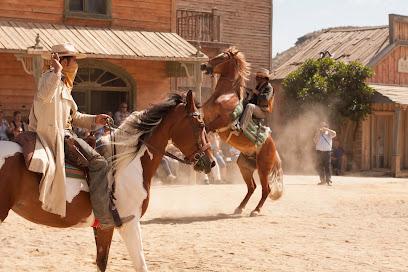
Refugios de la Guerra Civil Española de Almería
Discover Almeria's Civil War Shelters - A Journey Through History in Spain's Resilient Past.
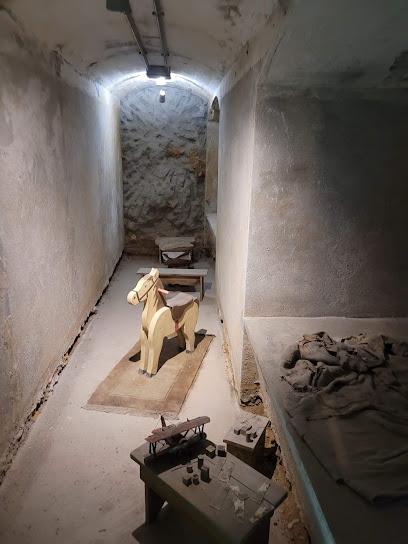
Parque Nicolás Salmerón
Explore the lush greenery and vibrant atmosphere of Parque Nicolás Salmerón, a serene urban park in the heart of Almería, perfect for relaxation and exploration.
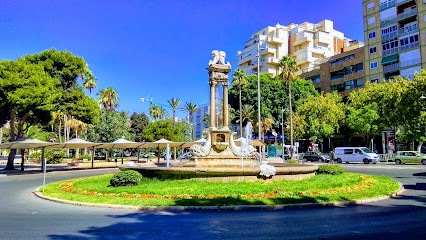
Playa de Agua Amarga
Experience the serene beauty of Playa de Agua Amarga, a captivating beach within Cabo de Gata-Nijar Natural Park, offering stunning landscapes and crystal-clear waters.
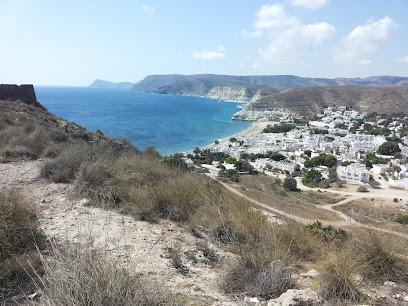
El Palmeral
Explore the serene beauty of El Palmeral in Almería, a lush park perfect for relaxation and family fun amidst stunning coastal views.
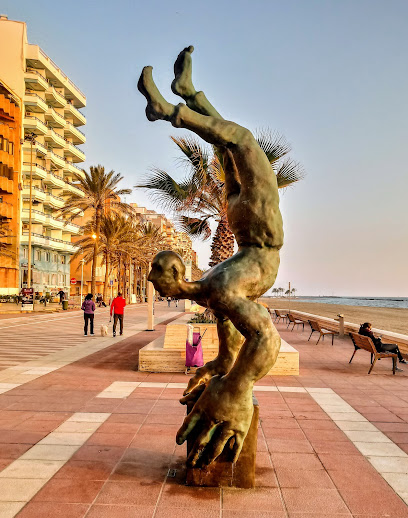
Museo de Arqueólogico de Almeria
Explore the Museo de Arqueológico de Almería, a treasure trove of ancient artifacts and cultural history in the heart of Almería, Spain.
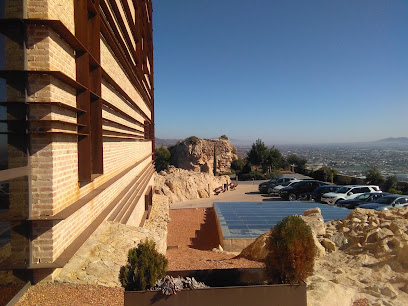
Cala del Plomo
Discover the serene beauty of Cala del Plomo in Cabo de Gata-Nijar Natural Park, a perfect escape for nature lovers and adventure seekers alike.
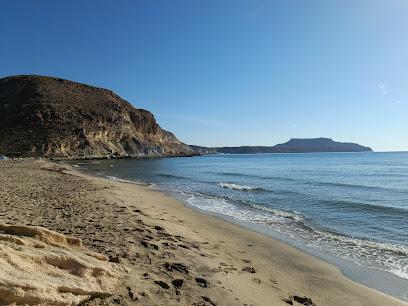
Cala de Enmedio
Explore the breathtaking landscapes and rich biodiversity of Parque Natural Cabo de Gata-Nijar, a must-visit natural park in Almería, Spain.
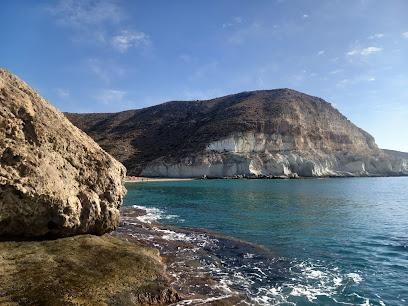
Playa Los Escullos
Discover the tranquility and natural beauty of Playa Los Escullos, a stunning beach in Almería, Spain, perfect for relaxation and adventure.
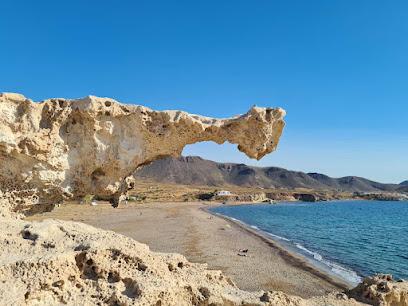
Toyo Aventura
Explore the stunning Mediterranean coastline with Toyo Aventura, the premier kayaking destination in La Fabriquilla, Almeria.
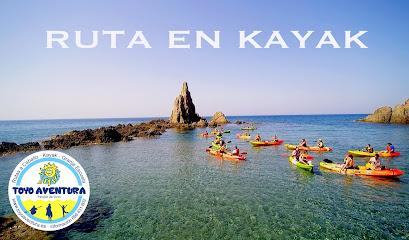
Essential places to dine
Brasería Cervecería La Consentida
Experience authentic Spanish cuisine at Brasería Cervecería La Consentida in Almería - where flavor meets tradition.
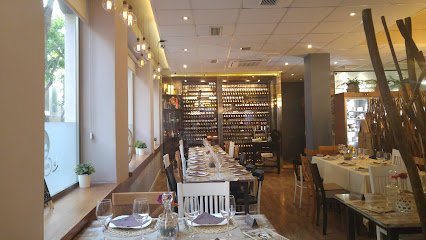
Casa Puga
Experience authentic Spanish tapas at Casa Puga in Almería – where tradition meets flavor in every bite.
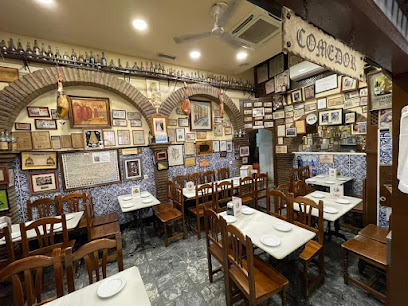
La Cabaña del Tío Tom
Discover authentic Spanish cuisine at La Cabaña del Tío Tom, a delightful tapas bar in Almería offering fresh flavors and warm hospitality.
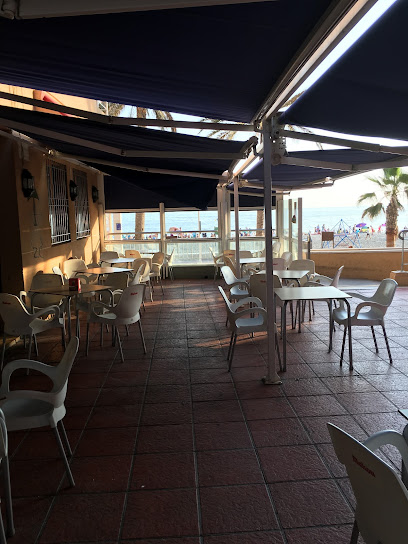
Taberna Nuestra Tierra
Discover delicious tapas and authentic Spanish cuisine at Taberna Nuestra Tierra in Almería - a must-visit for culinary enthusiasts.
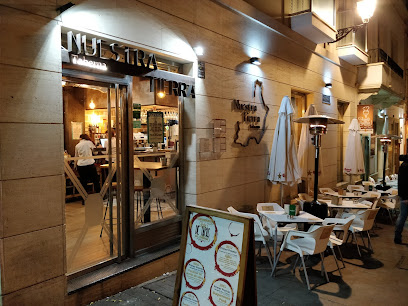
Taberna Entrevinos
Discover the vibrant tastes of Spain at Taberna Entrevinos – where every dish tells a story.
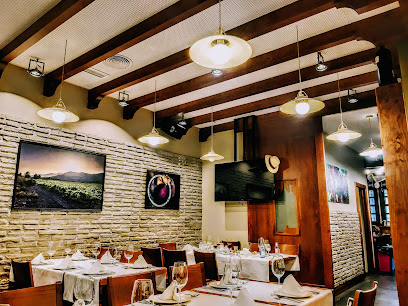
De Tal Palo - Taberna Gastronómica
Discover authentic Spanish flavors at De Tal Palo - your go-to tavern for grilled delights and traditional tapas in Almería.
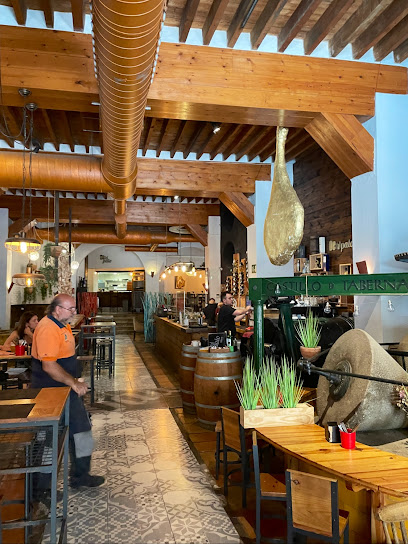
El Rincón de Basi
Experience authentic Spanish tapas at El Rincón de Basi in Almería, where every dish tells a story and every visit feels like home.
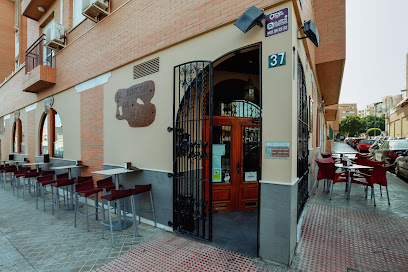
Restaurante La Lonja de Almeria
Experience exquisite seafood and authentic Mediterranean dishes at Restaurante La Lonja de Almeria - where every meal is a celebration of flavor.
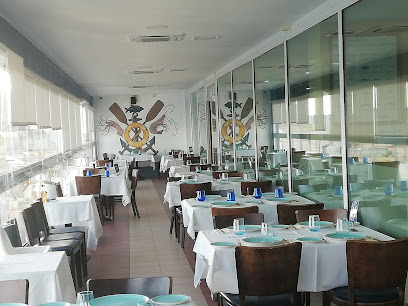
Bresca
Savor authentic Northern and Southern Italian cuisine at Bresca in Almería - where every meal is a journey through Italy's rich culinary landscape.
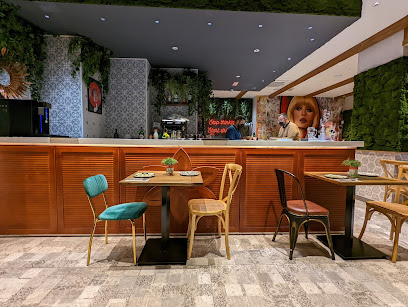
Tortillería La Mala
Experience authentic Spanish flavors at Tortillería La Mala – where every tortilla tells a story in Almería's vibrant culinary landscape.
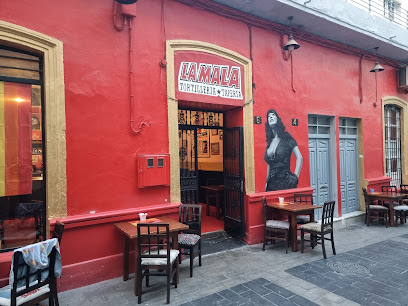
El Quinto Toro
Experience the vibrant flavors of Spain at El Quinto Toro, a top-rated tapas bar in Almería offering traditional dishes in a lively atmosphere.
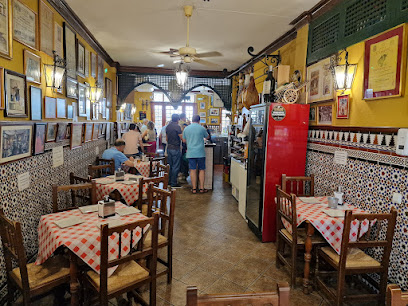
Las Patronas Almería
Experience the essence of Spanish cuisine at Las Patronas Almería - where tradition meets flavor in a charming setting.
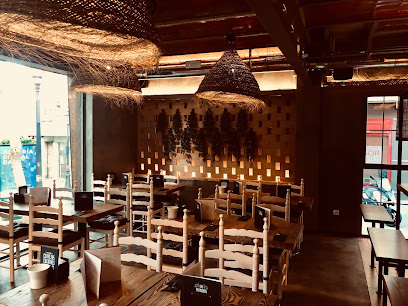
Restaurante La Tagliatella | Almería
Discover authentic Italian cuisine at Restaurante La Tagliatella in Almería - a delightful dining experience featuring pizzas and pastas made with love.
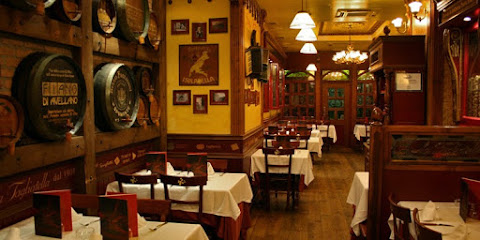
JOVELLANOS 16.
Experience authentic Spanish tapas at Jovellanos 16 in Almería - where flavor meets tradition in a cozy setting.
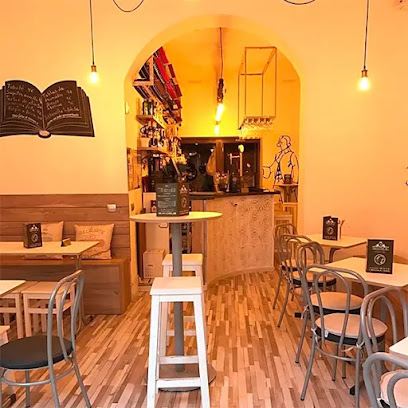
Almedina teashop
Discover authentic Moroccan teas and pastries at Almedina Teashop in Almería—a cozy haven for tea lovers.
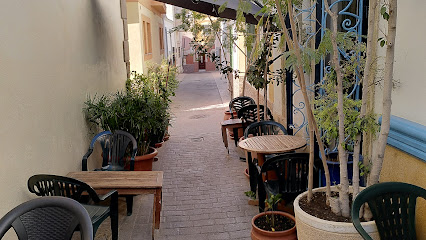
Markets, malls and hidden boutiques
Centro Comercial Torrecárdenas
Explore the vibrant Centro Comercial Torrecárdenas, Almería's premier shopping mall offering a diverse mix of shops, dining, and entertainment.
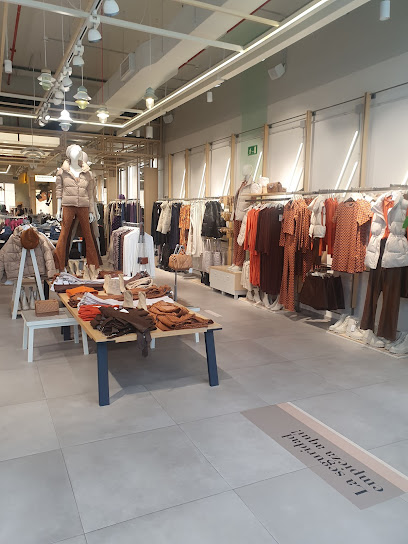
Centro Comercial Mediterráneo
Discover the ultimate shopping experience at Centro Comercial Mediterráneo in Almería, where style meets comfort and entertainment awaits.
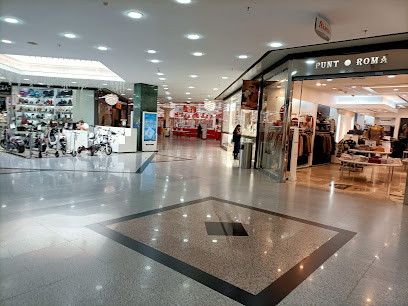
Flying Tiger Copenhagen
Discover the playful charm of Flying Tiger Copenhagen in Almería — a unique gift shop offering delightful home goods and quirky souvenirs for every traveler.
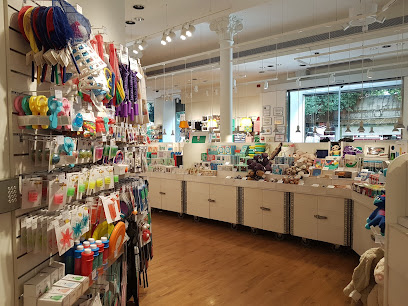
Centro Comercial Oliveros
Discover Centro Comercial Oliveros in Almería, your ultimate shopping destination packed with diverse stores, dining choices, and entertainment options for all ages.
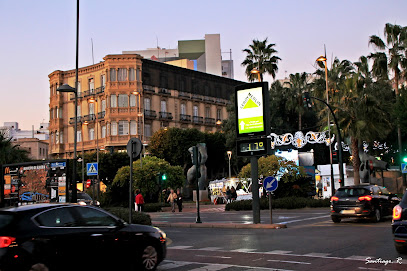
400 GALLINAS
Explore a treasure trove of unique gifts, body piercing, and exquisite costume jewelry at 400 Gallinas in Almería.
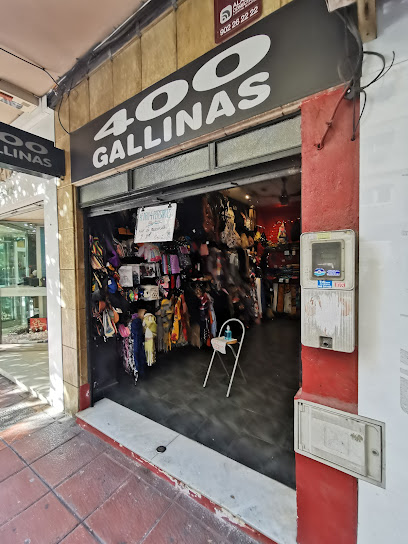
ALE-HOP
Discover ALE-HOP, Almería's vibrant gift shop offering unique souvenirs and local treasures that capture the spirit of Andalusian culture.
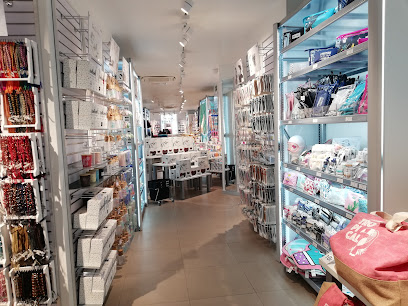
NO SEAS...
Explore NO SEAS Gift Shop in Almería for a unique selection of local souvenirs and handcrafted treasures that embody the spirit of Spain.
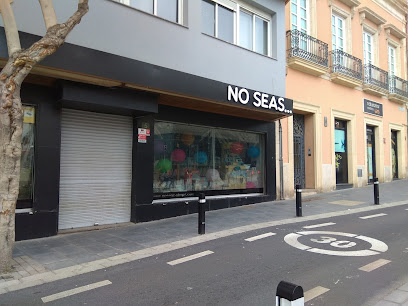
women'secret
Explore women'secret in Almería for stylish lingerie, trendy women's clothing, and unique baby apparel, all in one fashionable destination.
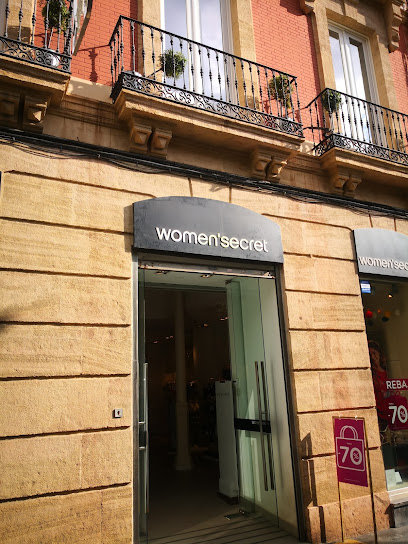
OLÉ SOUVENIRS DE ALMERÍA
Explore Olé Souvenirs de Almería for authentic local crafts, unique gifts, and a taste of the region's rich culture and artistry.
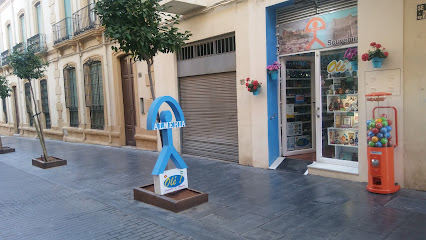
Santa Rita Regalos
Explore Almería's vibrant culture at Santa Rita Regalos, your go-to gift shop for unique souvenirs and local treasures.
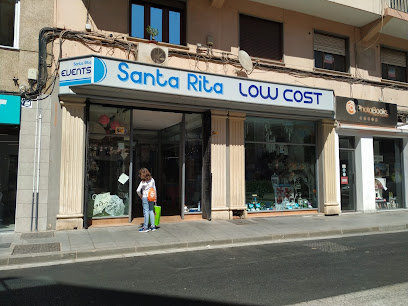
Riot Cinema Shop
Discover unique film-themed apparel and accessories at Riot Cinema Shop, where cinema meets fashion in a vibrant shopping experience.
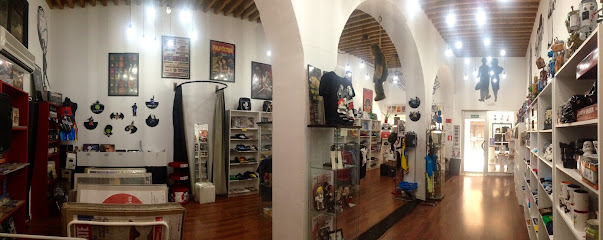
Natura
Explore Natura in Almería for unique gifts and clothing that embody the spirit of local craftsmanship and culture.
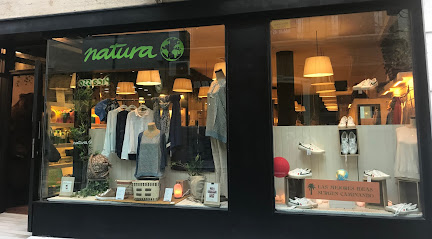
1001 CACHIMBAS Almería - Tienda Online
Explore the vibrant hookah culture at 1001 CACHIMBAS in Almería, your one-stop shop for premium hookah products and accessories.
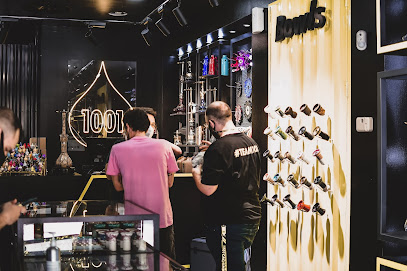
Paseo 79 Concept Store
Explore Paseo 79 Concept Store: A unique novelty and gift shop in Almería showcasing local creativity and charm.
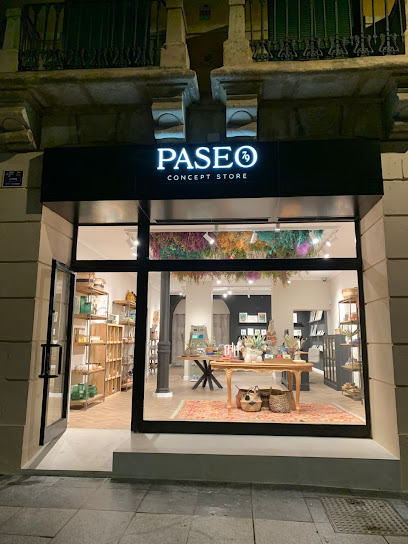
Joyeria Canaima
Explore Joyeria Canaima in Almería for exquisite jewelry and watches, a blend of craftsmanship and elegance that captures the spirit of Spanish artistry.
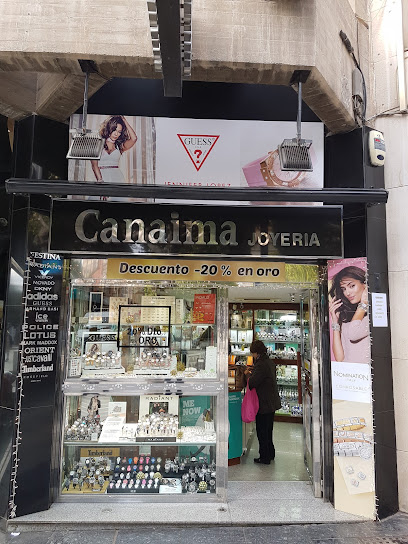
Essential bars & hidden hideouts
Casa Puga
Discover the authentic taste of Almería at Casa Puga, a vibrant tapas bar offering traditional Spanish dishes in a warm and inviting atmosphere.
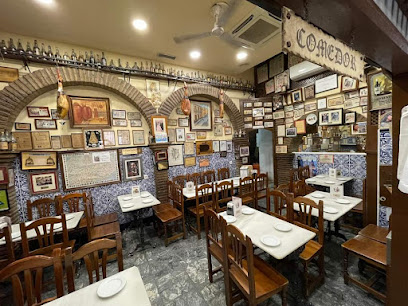
Taberna Nuestra Tierra
Discover the essence of Almería's cuisine at Taberna Nuestra Tierra, where authentic tapas and a warm atmosphere await every traveler.
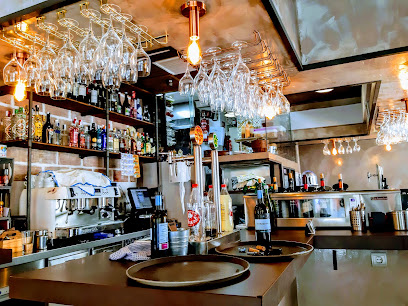
JOVELLANOS 16.
Discover the heart of Almería’s culinary scene at Jovellanos 16, a vibrant tapas bar serving authentic Spanish flavors in a lively atmosphere.
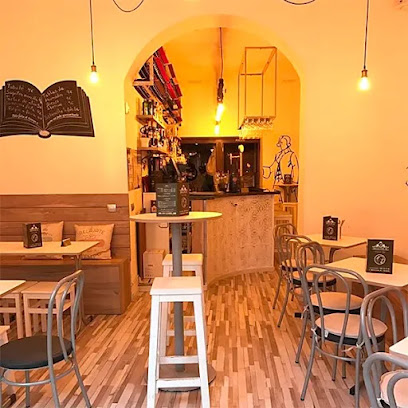
Santa Clara Playa-Bar
Experience vibrant cocktails and stunning coastal views at Santa Clara Playa-Bar in Almería, your perfect getaway for relaxation and nightlife.
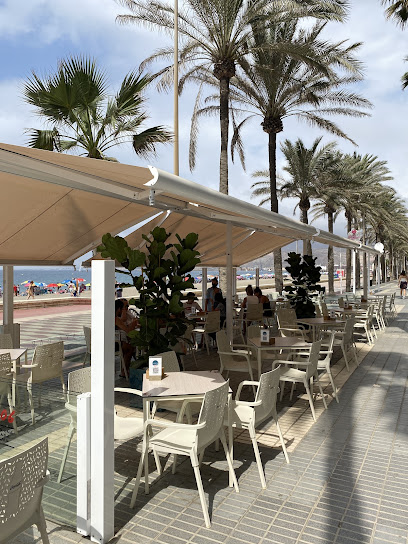
Rotterdam Tap Room
Experience the vibrant atmosphere of Rotterdam Tap Room, a gem in Almería known for its craft beers and friendly ambiance.
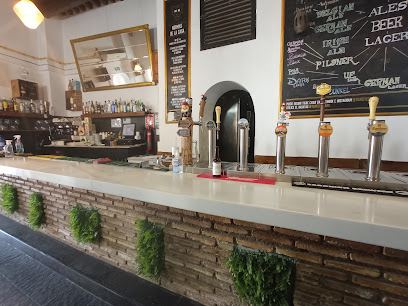
Bar La Lupe
Experience the vibrant flavors of Almería at Bar La Lupe, where traditional tapas meet Mexican flair in a lively atmosphere.
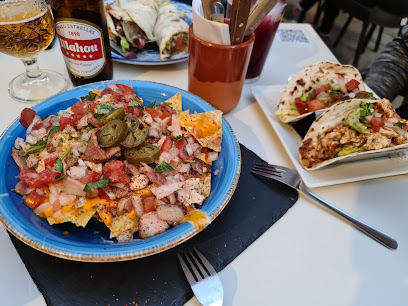
La Fuga Pub-Cervecería
Discover Almería's nightlife at La Fuga Pub-Cervecería, where local brews meet vibrant atmosphere and delicious bites.
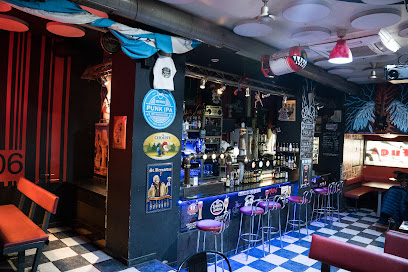
Pub Vértice - Almería
Experience the vibrant nightlife and local culture at Pub Vértice in Almería, where friendly faces and delicious drinks await.
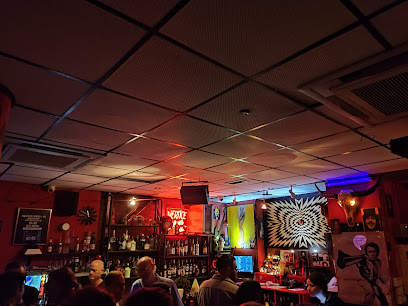
Cafetin - Almería
Experience the lively ambiance and enchanting live music at Cafetin, a must-visit piano bar in Almería for unforgettable nights out.
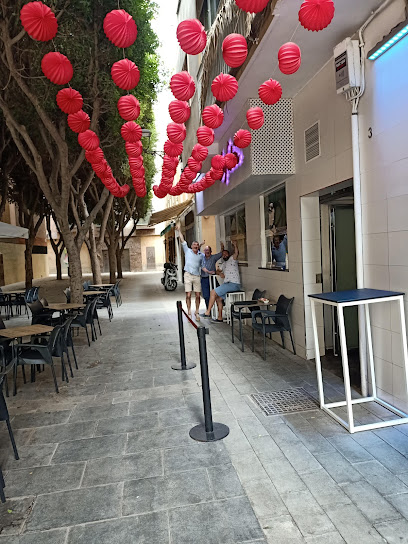
Bar Bahía de Palma
Experience authentic tapas in the heart of Almería at Bar Bahía de Palma, where local flavors meet a vibrant atmosphere.
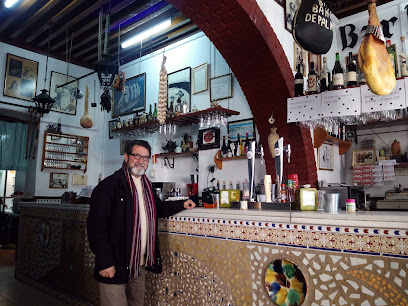
Canta La Gallina - Almería
Experience Almería's vibrant nightlife at Canta La Gallina, a cocktail bar and coffee shop that offers a unique blend of relaxation and excitement.
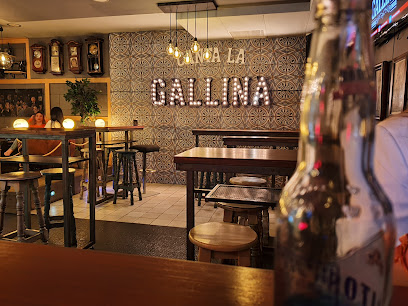
Alabama country-rock bar - Almería
Discover the lively Alabama Country-Rock Bar in Almería, where great music and affordable drinks create unforgettable nights.
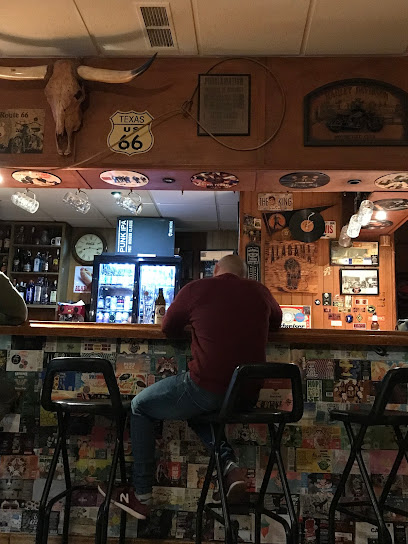
Kutre Pub
Experience the lively atmosphere of Kutre Pub in Almería, where vibrant nightlife meets a welcoming ambiance for tourists and locals alike.
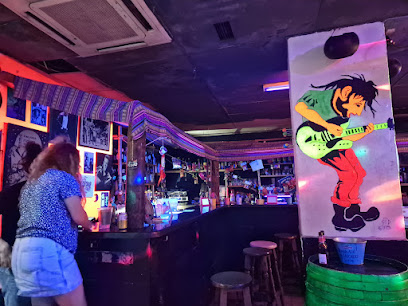
La Chica de Ayer
Experience the vibrant nightlife of Almería at La Chica de Ayer, a cozy pub offering a delightful selection of drinks and a warm atmosphere.
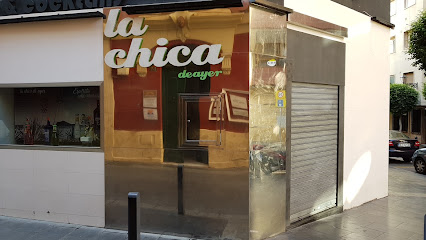
Local Phrases
-
- HelloHola
[oh-la] - GoodbyeAdiós
[ah-dee-ohs] - YesSí
[see] - NoNo
[no] - Please/You're welcomePor favor/De nada
[por fah-vor/deh nah-dah] - Thank youGracias
[grah-thyas] - Excuse me/SorryPerdón/Lo siento
[pair-dohn/loh see-en-toh] - How are you?¿Cómo estás?
[koh-moh ehs-tahs] - Fine. And you?Bien. ¿Y tú?
[byen. ee too] - Do you speak English?¿Hablas inglés?
[ah-blahs een-glays] - I don't understandNo entiendo
[noh ehn-tyen-doh]
- HelloHola
-
- I'd like to see the menu, pleaseMe gustaría ver la carta, por favor
[meh goos-tah-ree-ah behr lah kar-tah, por fah-vor] - I don't eat meatNo como carne
[noh koh-moh kahr-neh] - Cheers!¡Salud!
[sah-lood] - I would like to pay, pleaseMe gustaría pagar, por favor
[meh goos-tah-ree-ah pah-gar, por fah-vor]
- I'd like to see the menu, pleaseMe gustaría ver la carta, por favor
-
- Help!¡Ayuda!
[ah-yoo-dah] - Go away!¡Vete!
[veh-teh] - Call the Police!¡Llama a la policía!
[yah-mah ah lah poh-lee-see-ah] - Call a doctor!¡Llama a un médico!
[yah-mah ah oon meh-dee-koh] - I'm lostEstoy perdido
[ehs-toy pair-dee-doh] - I'm illEstoy enfermo
[ehs-toy ehn-fehr-moh]
- Help!¡Ayuda!
-
- I'd like to buy...Me gustaría comprar...
[meh goos-tah-ree-ah kohm-prahr...] - I'm just lookingSolo estoy mirando
[soh-loh ehs-toy meer-ahn-doh] - How much is it?¿Cuánto cuesta?
[kwahn-toh kwehs-tah] - That's too expensiveEsto es demasiado caro
[ehs-toh ehs deh-mah-syah-doh kah-roh] - Can you lower the price?¿Puedes bajar el precio?
[pweh-dehs bah-har el pree-thyoh]
- I'd like to buy...Me gustaría comprar...
-
- What time is it?¿Qué hora es?
[keh oh-rah ehs] - It's one o'clockEs la una
[ehs lah oo-nah] - Half past (10)Las diez y media
[lahs dyehs ee meh-dee-ah] - MorningMañana
[mah-nyah-nah] - AfternoonTarde
[tahr-deh] - EveningNoche
[noh-cheh] - YesterdayAyer
[ah-yehr] - TodayHoy
[oy] - TomorrowMañana
[mah-nyah-nah] - 1Uno
[oo-noh] - 2Dos
[dohs] - 3Tres
[trehs] - 4Cuatro
[kwah-troh] - 5Cinco
[theen-koh] - 6Seis
[says] - 7Siete
[syeh-teh] - 8Ocho
[oh-choh] - 9Nueve
[nweh-veh] - 10Diez
[dyehs]
- What time is it?¿Qué hora es?
-
- Where's a/the...?¿Dónde está...?
[dohn-deh ehs-tah] - What's the address?¿Cuál es la dirección?
[kwahl ehs lah dee-rehk-syohn] - Can you show me (on the map)?¿Puedes mostrarme (en el mapa)?
[pweh-dehs mohs-trar-meh (ehn el mah-pah)] - When's the next (bus)?¿Cuándo es el próximo (autobús)?
[kwan-doh ehs ehl proh-ksy-moh (ow-toh-boos)] - A ticket (to ....)Un billete (a...)
[oon bee-yeh-teh (ah...)]
- Where's a/the...?¿Dónde está...?
History of Almeria
-
Almeria's history dates back to prehistoric times, with evidence of human settlement in the region as far back as the Paleolithic era. Archaeological findings in the Cueva de los Letreros and other nearby sites have uncovered cave paintings and artifacts that illustrate the area's early human activity.
-
In the first millennium BCE, the Phoenicians and later the Carthaginians established colonies along the southeastern coast of Spain, including the area that would become Almeria. These ancient civilizations contributed to the development of trade routes and cultural exchanges across the Mediterranean.
-
The Romans conquered the region in the 3rd century BCE, integrating it into the Roman Empire as part of the province of Hispania. The city of Urci, located near present-day Almeria, became an important Roman settlement known for its agricultural production and trade.
-
Following the decline of the Roman Empire, Almeria fell under the control of the Visigoths in the 5th century CE. This period saw the continuation of agricultural practices and the introduction of Christianity to the region.
-
The arrival of the Moors in the early 8th century CE marked the beginning of Almeria's golden age. As part of the Caliphate of Cordoba, Almeria flourished as a major port city, renowned for its shipbuilding, silk production, and vibrant trade with North Africa and the Middle East. The Alcazaba of Almeria, a massive fortress built in the 10th century, stands as a testament to this prosperous era.
-
In 1489, Almeria was captured by the Catholic Monarchs Ferdinand and Isabella during the Reconquista. The city was incorporated into the Kingdom of Castile, leading to significant demographic and cultural changes. The construction of the Almeria Cathedral, originally built as a fortress, reflects the city's strategic importance during this period.
-
The 19th and 20th centuries brought modernization and industrialization to Almeria. The city became known for its mining industry, particularly the extraction of iron ore and lead. The 20th century also saw significant urban development and the expansion of the agricultural sector, with Almeria becoming a leading exporter of fruits and vegetables.
-
Today, Almeria is a vibrant city that blends its rich historical heritage with modern amenities. It is known for its stunning landscapes, including the Cabo de Gata-Níjar Natural Park, and its thriving film industry, with many iconic films shot in the region's diverse terrains. Tourism, agriculture, and renewable energy are key components of Almeria's contemporary economy.
Almeria Essentials
-
Almeria is located in the southeastern part of Spain, in the region of Andalusia. The nearest major airport is Almeria Airport (LEI), which receives both domestic and international flights. From the airport, you can take a taxi, bus, or rent a car to reach the city center, which is about 9 kilometers away. Alternatively, you can fly into Malaga Airport or Alicante Airport and take a bus or train to Almeria. There are also direct train services from major Spanish cities such as Madrid and Barcelona.
-
Almeria offers a variety of transportation options. The local bus network is extensive and covers most tourist attractions and neighborhoods. Taxis are readily available and can be hailed on the street or booked via apps. Renting a car is a convenient option if you plan to explore the surrounding areas such as Cabo de Gata-Níjar Natural Park. Cycling is also popular, with several bike rental services available. The city is pedestrian-friendly, and many attractions are within walking distance of each other.
-
The official currency in Spain is the Euro (EUR). Credit and debit cards are widely accepted in hotels, restaurants, and shops. ATMs are plentiful throughout Almeria, and you can withdraw cash using international cards. It is a good idea to carry some cash for smaller establishments, local markets, and rural areas where card payment may not be possible.
-
Almeria is generally a safe city for tourists. However, like any travel destination, it is advisable to take standard precautions. Avoid walking alone at night in unfamiliar areas and keep an eye on your belongings in crowded places. The neighborhoods of El Puche and La Chanca have higher crime rates and are best avoided, especially at night. Petty crimes like pickpocketing can occur in busy tourist areas, so remain vigilant.
-
In case of emergency, dial 112 for immediate assistance, which is the general emergency number in Spain. For police assistance, you can also dial 091. Almeria has several hospitals and medical facilities, including Hospital Universitario Torrecárdenas. Pharmacies are widely available and can provide over-the-counter medications. It is recommended to have travel insurance that covers medical emergencies.
-
Fashion: Do dress modestly, especially when visiting religious sites. Avoid wearing revealing clothing. Religion: Do respect local customs and traditions. Always cover your shoulders and knees when entering churches. Public Transport: Do be respectful and give up your seat to elderly passengers. Don’t eat or drink on public transport. Greetings: Do greet people with a 'Hola' and a handshake. A kiss on each cheek is also common among friends. Eating & Drinking: Do try local delicacies and accept food offerings graciously. Don’t refuse hospitality, as it is considered impolite.
-
To experience Almeria like a local, visit the Mercado Central de Almería, where you can buy fresh produce and traditional Spanish goods. Engage with locals, as they are often friendly and willing to share stories about the city's history and culture. Don’t miss the annual Feria de Almería, a week-long festival in August that features parades, flamenco performances, and local cuisine. For a unique experience, hike in the Cabo de Gata-Níjar Natural Park, offering stunning coastal landscapes and secluded beaches.
Trending Landmark in Almeria
-
Conjunto Monumental de la Alcazaba de Almería
-
Almeria Cathedral
-
Civil War Shelters
-
Parque Nicolás Salmerón
-
Museo de Arqueólogico de Almeria
-
Plaza Vieja
-
Parque de las Almadrabillas
-
Almeria Walk of Fame
-
Cerro San Cristobal
-
Cathedral Square
-
St. Peter's Square
-
Heritage Interpretation Center of Almeria
-
Real Hospital of St. María Magdalena
-
Tren turístico Almería
-
Centro de Interpretación Puerta de Almería (Muralla Califal)
Nearby Cities to Almeria
-
Things To Do in Murcia
-
Things To Do in Málaga
-
Things To Do in Oran
-
Things To Do in Tlemcen
-
Things To Do in Ronda
-
Things To Do in Alicante
-
Things To Do in Oujda
-
Things To Do in Catalan Bay
-
Things To Do in Moorish Castle
-
Things To Do in St. Michael's Cave
-
Things To Do in Casemates Square
-
Things To Do in Gorham's Cave Complex
-
Things To Do in Gibraltar
-
Things To Do in Main Street
-
Things To Do in Alameda Botanic Gardens












